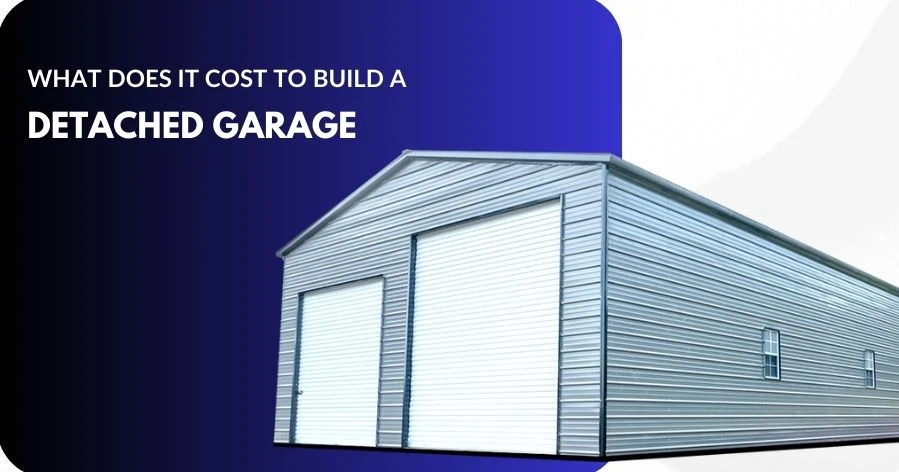What Does It Cost to Build a Detached Garage?

The majority of new home construction going up in America comes with attached garages included. That shouldn’t be surprising, since over 9 out of 10 U.S. households report owning one or more vehicles. Even so, the demand for adding a detached garage is still on the rise. Why is that?
One reason is that many families have multiple vehicles to park. Another key driver is the storage space factor. Most Americans have more stuff than room to keep it, and having detached garage space for overflow storage comes in really handy. Metal garages are a great solution in that regard. They’re rugged and customizable, and the cost of building a detached garage with steel is more budget-friendly than going with a stick build.




